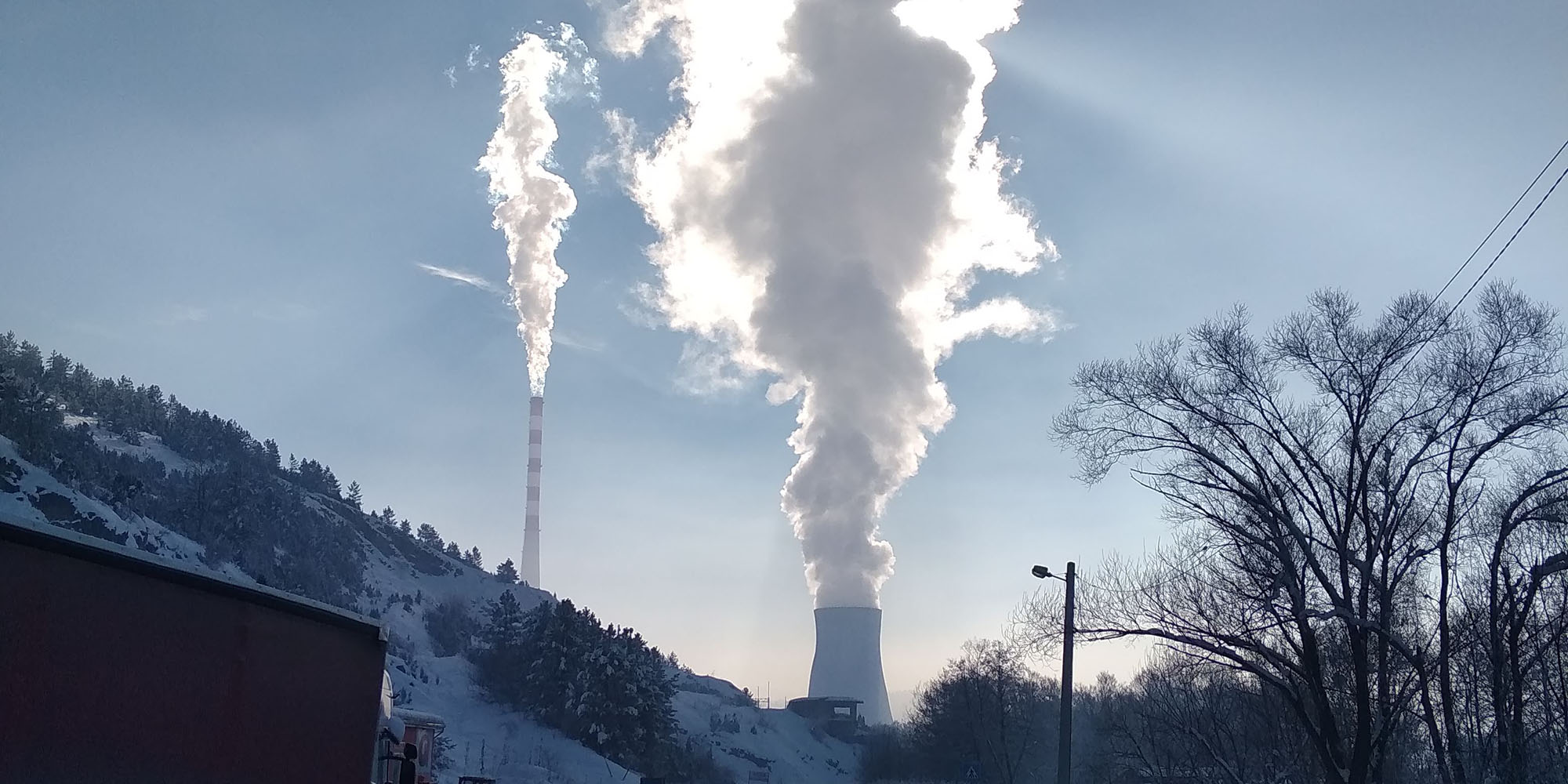New report: Western Balkan coal plants in severe breach of air pollution limits
Brussels – Western Balkan countries breach air pollution limits for coal plants agreed with the Energy Community by as much as six times for one toxic substance, according to new research published today by CEE Bankwatch Network.
10 December 2019

According to the research, total sulphur dioxide emissions from coal plants in Serbia, Kosovo, Bosnia and Herzegovina and North Macedonia were more than six times as high in 2018 as the overall ceiling agreed with the Energy Community in the countries’ National Emission Reduction Plans.
One power plant in Serbia, Kostolac B, single-handedly emits more SO2 than the total allowed for the four countries together despite being the only plant in the region with recently installed desulphurisation equipment. The China Machinery and Engineering Corporation (CMEC), the company which installed the equipment, has also been entrusted to build a whole new unit at the Serbian coal complex.
Dust emissions from coal plants in Serbia, Kosovo, Bosnia and Herzegovina and North Macedonia also exceeded the ceiling by over 60 per cent. Serbia’s and Kosovo’s contributions alone were enough to breach the overall ceiling. Kosovo B was the highest emitting plant for dust, producing around half of the total allowed for the four countries.
Countries in the Western Balkans are signatories of the Energy Community Treaty, which includes industrial pollution reduction targets, the first of which should have been implemented by 2018. Yet the new research highlights that, not only are the countries breaking their commitments, but at some plants in the region, pollution levels have worsened.
“Given the life-threatening nature of air pollution, the neglect of this issue by the region’s governments is incomprehensible and reprehensible. Investing in pollution control is not just a legal obligation, it is also the duty of any government which cares about its people,” says Ioana Ciuta, Bankwatch Energy Coordinator and one of the authors of the report.
“Instead of investing in pollution control and steadily decreasing the share of coal in the energy mix, the Bosnia and Herzegovina, Kosovo and Serbian governments are planning new coal plants, all of them in contradiction to EU legislation on environment, state aid and/or procurement. Instead of locking themselves into decades of increasingly expensive coal use, Western Balkan countries need to ensure existing plants meet pollution requirements or close them down, and plan for a coal-free future,” says Pippa Gallop, Bankwatch Senior Energy Advisor for South East Europe and co-author of the new research.
The report includes recommendations for how national governments can improve pollution monitoring and control, as well as for how the European Union should act to strengthen the Energy Community, to ensure that pollution breaches do not continue unsanctioned.
The report will be officially launched Dec. 10 during an event in the European Parliament hosted by MEP Viola von Cramon, the Greens/EFA and MEP Petros Kokkalis, GUE/NGL. Please feel free to join: starting at 9.00 in the European Parliament, Brussels, room ASP 1E1.
The agenda is available here, representatives of the European Commission and Energy Community will be discussing the findings of the Bankwatch report.
Notes for editors
Read the new Bankwatch report, “Comply or Close”
See the agenda of the event in the European Parliament where the report is launched and its findings discussed by representatives of key EU institutions:
For more information, contact
Ioana Ciuta
CEE Bankwatch Network
E-mail: ioana.ciuta@bankwatch.org
Mobile: +40724020281
Pippa Gallop
CEE Bankwatch Network
E-mail: pippa.gallop@bankwatch.org
Mobile: +385 (0)99 755 9787
Never miss an update
We expose the risks of international public finance and bring critical updates from the ground – straight to your inbox.
Project: Coal in the Balkans
Tags: Energy Community | air pollution | balkan coal | coal | emissions
